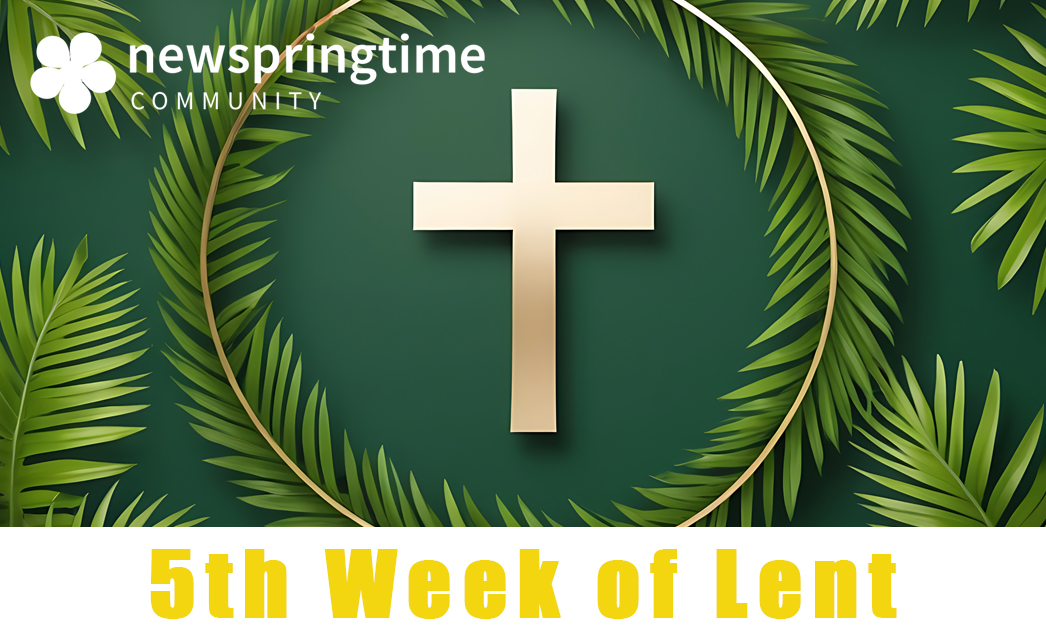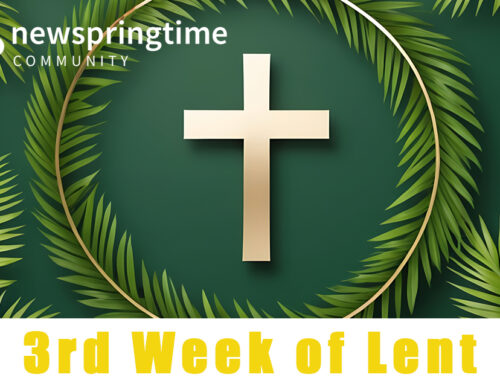If you would like to download a copy of this notes in PDF, please click here
Commentary on Jn 3:14-21, 5th Sunday in Lent 2024
This week’s gospel refers to Greeks who went up to worship at the festival on Mount Zion in Jerusalem. These people were not literally from Greece. Rather they were probably gentiles from Eastern Mediterranean cities who were culturally Greek and spoke Greek. They were, in all likelihood, what were known as “God fearers,” i.e., people who had accepted Jewish monotheism and the moral laws of the Old Testament. There was another group of gentile Greeks who were referred to as “proselytes.” They accepted Jewish ritual laws and were circumcised. In other words, they were Jewish in all but name. A number of these people came to Philip. That was understandable because unlike most of the other apostles who had Jewish names, Philip’s name was Greek which indicated that although he was Jewish, he was influenced by Greek culture and language. He came from Bethsaida, which was governed by Herod Philip. It was located near the Decapolis, which consisted of ten cities which were Greek in character.
The Greek gentiles wanted an audience with Jesus. One could read a good deal of spiritual significance into the phrase, “we would like to see Jesus.” In other words, they wanted to get to know him, to develop a relationship with him. The well-known prayer of St Richard of Chichester begins with the words, “Three things I pray, to see thee more clearly. . .” Apparently, Philip passed the message on to Andrew, who also had a Greek name, who in his turn passed it on to Jesus. Jesus responded, it is not clear whether his words were addressed to Andrew, or the Greek speaking gentiles. By the way, we don’t know whether Jesus could speak Greek or not. Many scholars still maintain that he spoke only Aramaic, but discoveries since the Dead Sea Scrolls were found in 1947 indicate the use of both Hebrew and Greek alongside Aramaic in Roman Palestine. If Jesus only spoke Aramaic, presumably his Greek speaking inquirers could understand the language, or Philip acted as an interpreter.
Jesus spoke about his impending glorification. What is unexpected is the fact that rather than referring exclusively about his resurrection and ascension, he saw his crucifixion, in spite of its shameful and horrifying nature, as the beginning of the revelation of his glory. In a way it makes sense, in so far as it was the manifestation of the incomprehensible love that led him to offer his life as a scapegoat for the ransom of sinners who would believe in the saving merits of his death. To illustrate this point, he referred to the image of the seed that has to die to itself in the soil in order to give rise to new life and fruitfulness. So too, all those who become his disciples would need to die to self, no matter what the cost, in order to live for God and the service of other human beings. He promised that God would honour such people, presumably by raising them like Jesus to new and eternal life.
Then Our Lord said, “Now my soul is troubled, and what shall I say? ‘Father, save me from this hour’? No, it was for this very reason I came to this hour.” These words are reminiscent of the agony of Jesus in the Garden of Gethsemane. But unlike the other accounts of that event Jesus did not ask the Father to remove the chalice of suffering from him. Rather, he embraced his suffering as the beginning of his glorification. When Jesus called upon God to glorify his name, God the Father responded in an awe- inspiring way when he said, “I have glorified it, and will glorify it again.” It is possible that the Father was referring to the deeds of power that Jesus had exercised during his public ministry in the past. Perhaps the Father was also referring to the transfiguration of Jesus. Then he went on to say he would glorify the name of Jesus in the future, by means of his saving death, resurrection and ascension. It is interesting to note that some of the people thought that it was an angel that has spoken.
If I am not mistaken John’s Gospel does not include accounts of exorcisms. However, in this Sunday’s reading, Jesus refers to the devil as the ruler of this world, i.e., he exercises great authority and influence. But when Jesus is crucified and rises, the ruler’s power will be broken in principle and will be broken in fact in his second coming. By his death on the cross Jesus will draw all kinds of people to himself both Jews and Gentiles.





